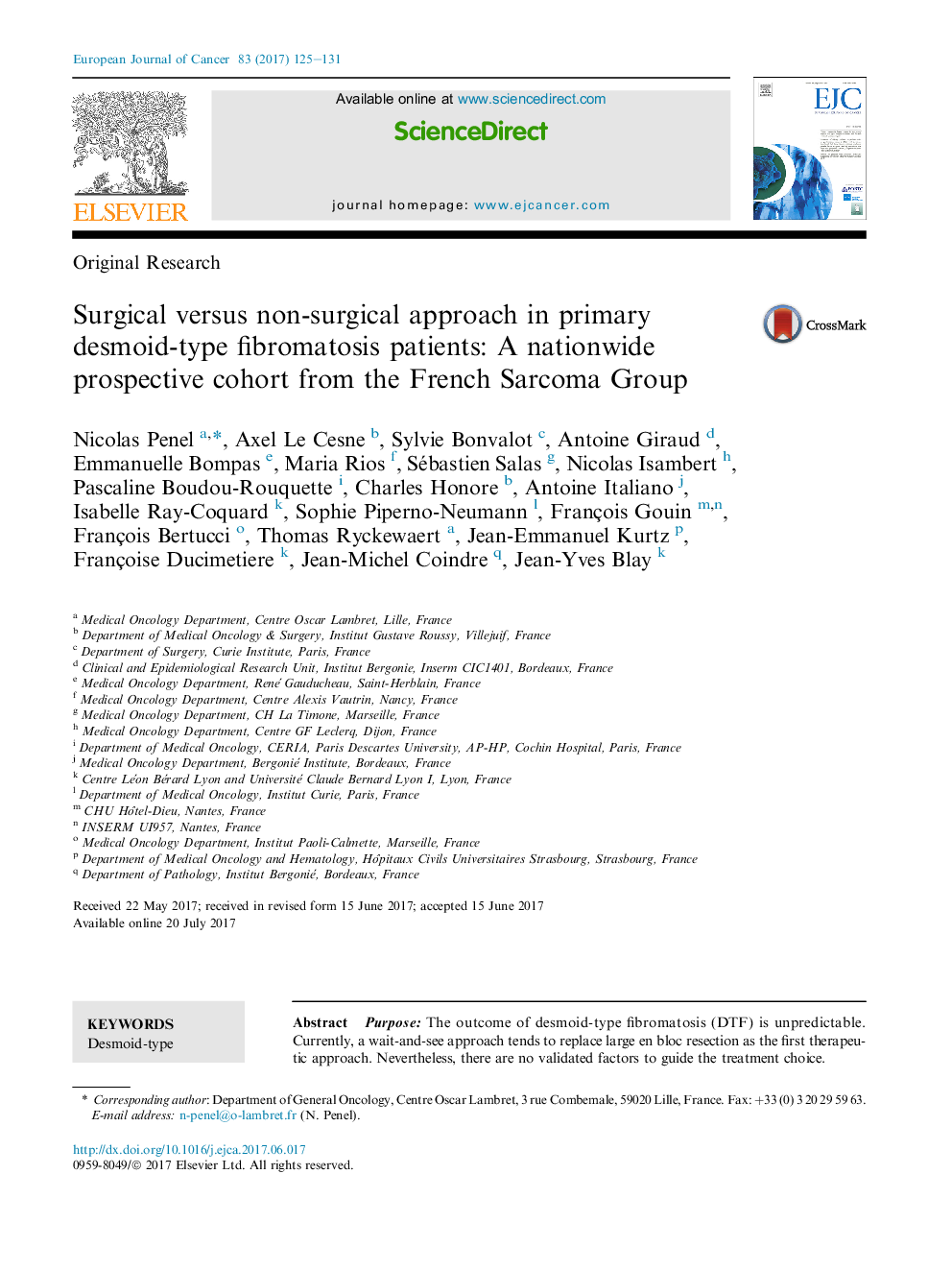| Article ID | Journal | Published Year | Pages | File Type |
|---|---|---|---|---|
| 5526392 | European Journal of Cancer | 2017 | 7 Pages |
â¢Primary location is a prognostic factor in desmoid tumour patients.â¢Overall, the wait-and-see policy provides similar outcomes compared with surgery.â¢Surgery is associated with poor outcome in 'favourable' locations.â¢Both the wait-and-see policy and surgery similar outcomes in 'unfavourable' locations.
PurposeThe outcome of desmoid-type fibromatosis (DTF) is unpredictable. Currently, a wait-and-see approach tends to replace large en bloc resection as the first therapeutic approach. Nevertheless, there are no validated factors to guide the treatment choice.MethodWe conducted a prospective study of 771 confirmed cases of DTF. We analysed event-free survival (EFS) based on the occurrence of relapse after surgery, progressive disease during the wait-and-see approach, or change in therapeutic strategy. Identification of prognostic factors was performed using classical methods (log-rank test and Cox model).ResultsOverall, the 2-year EFS was 56%; this value did not differ between patients undergoing an operation and those managed by the wait-and-see approach (53% versus 58%, p = 0.415). In univariate analysis, two prognostic factors significantly influenced the outcome: the nature of diagnostic sampling (p = 0.466) and primary location (p = 0.0001). The 2-year EFS was only 32% after open biopsy. The 2-year EFS was 66% for favourable locations (abdominal wall, intra-abdominal, breast, digestive viscera and lower limb) and 41% for unfavourable locations. Among patients with favourable locations, the 2-year EFS was similar in patients treated by both surgery (70%) and the wait-and-see approach (63%; p = 0.413). Among patients with unfavourable locations, the 2-year EFS was significantly enhanced in patients initially managed with the wait-and-see approach (52%) compared with those who underwent initial surgery (25%; p = 0.001).ConclusionThe location of DTF is a major prognostic factor for EFS. If these findings are confirmed by independent analysis, personalised management of DTF must consider this easily obtained parameter.
